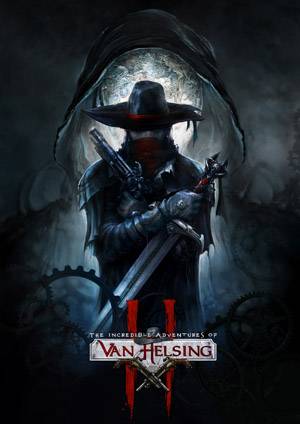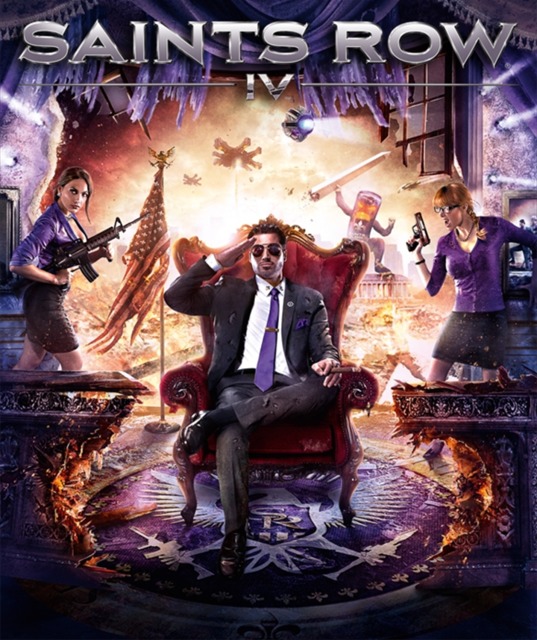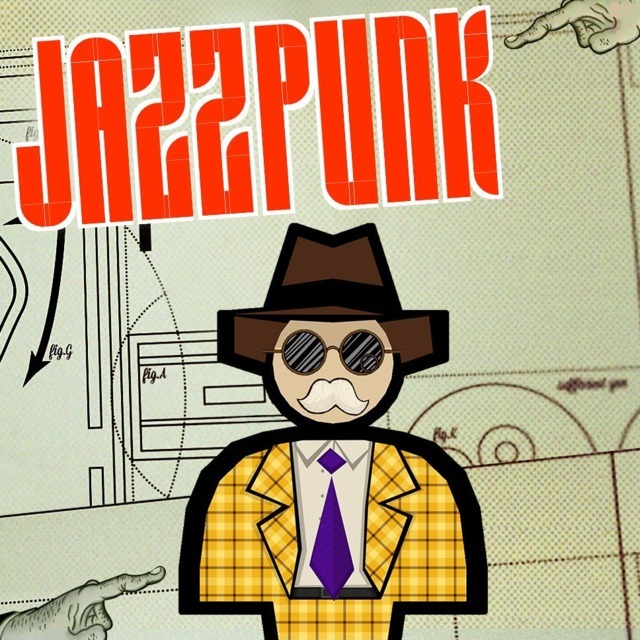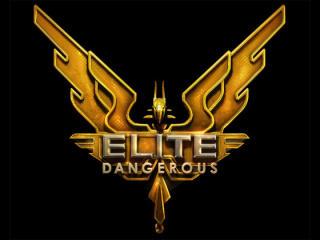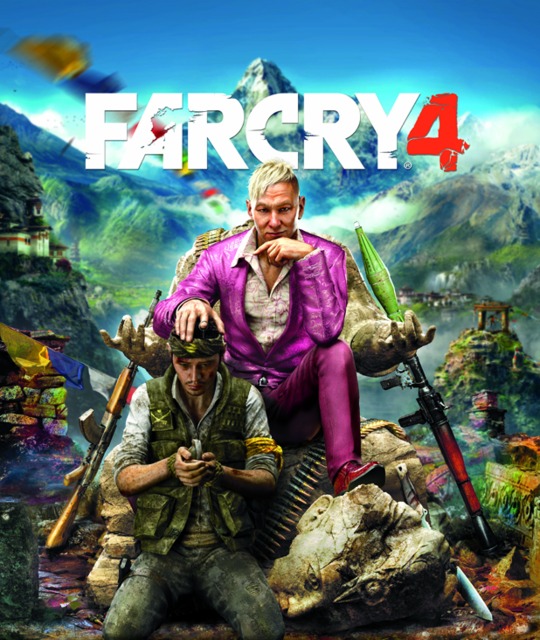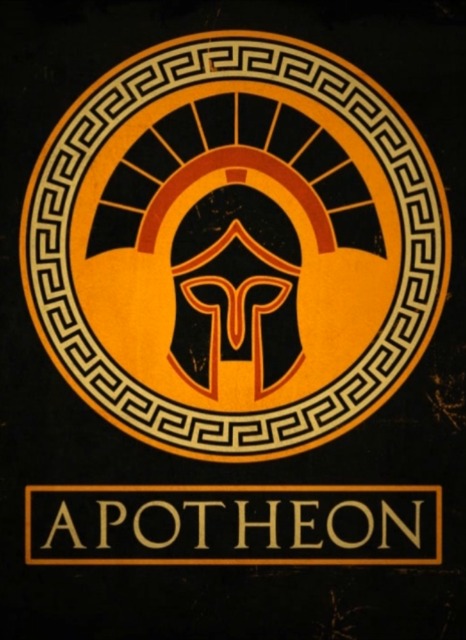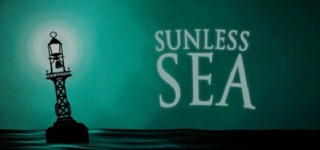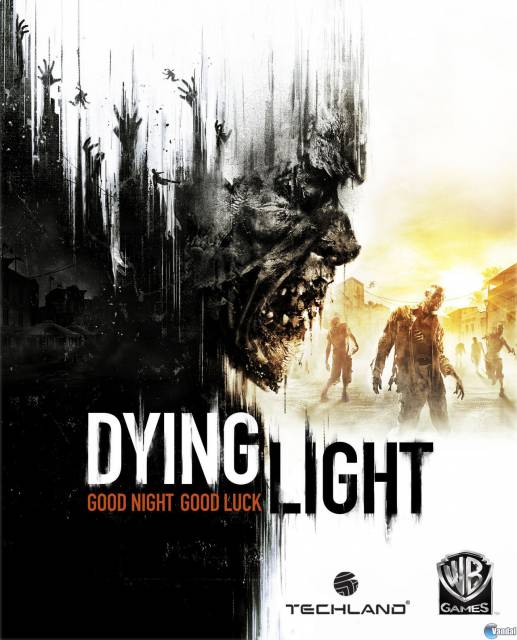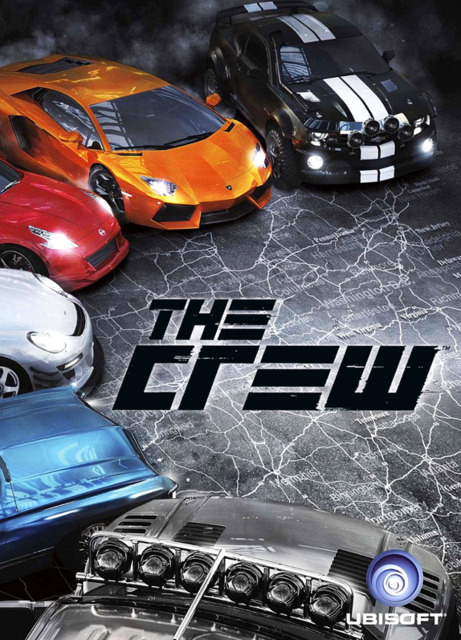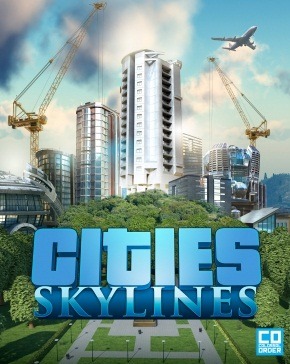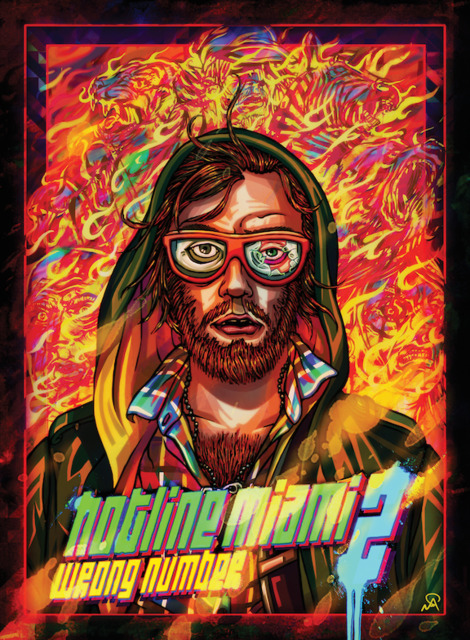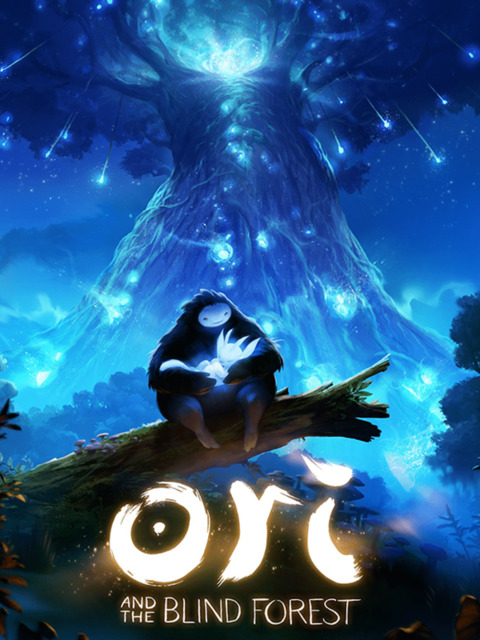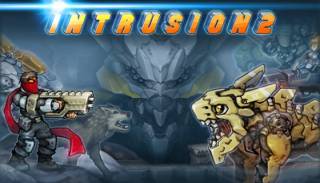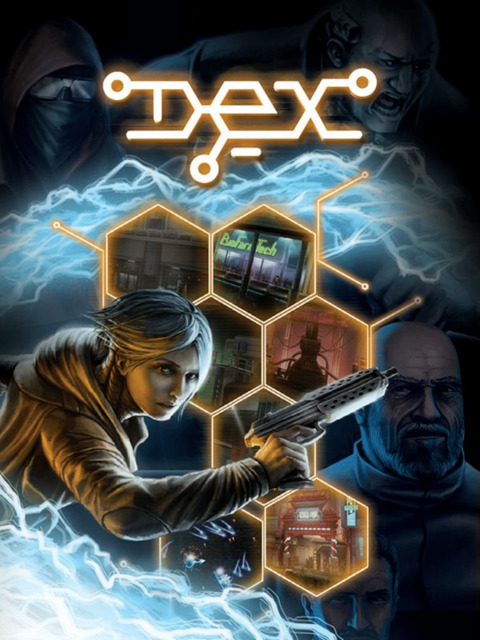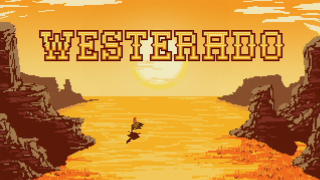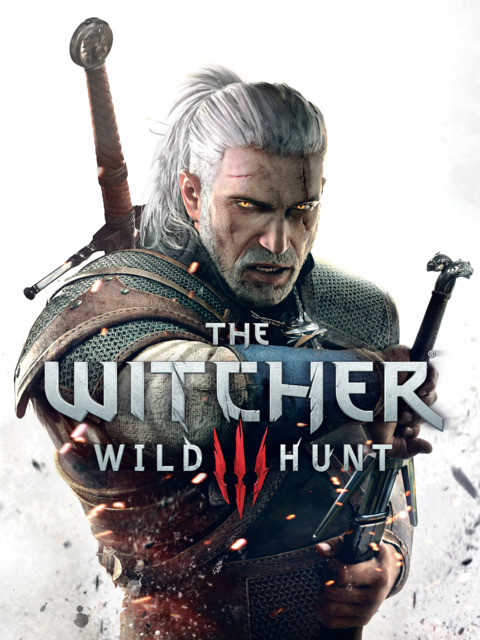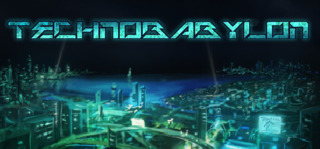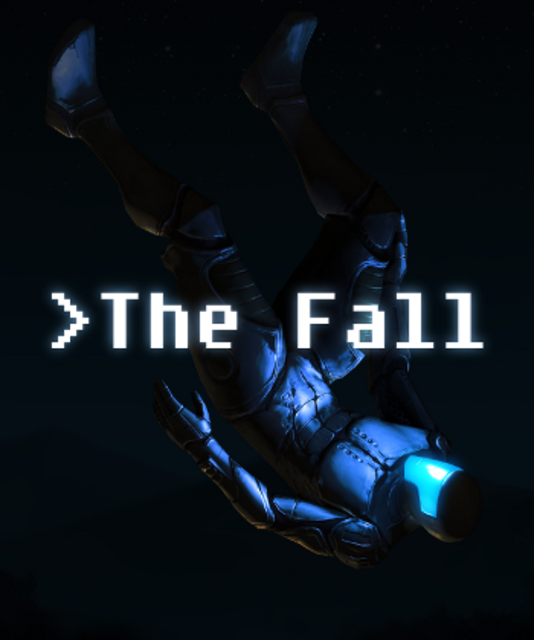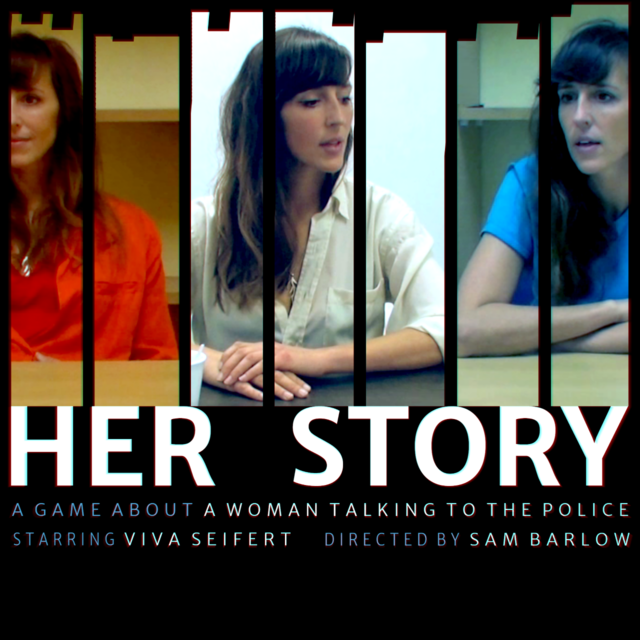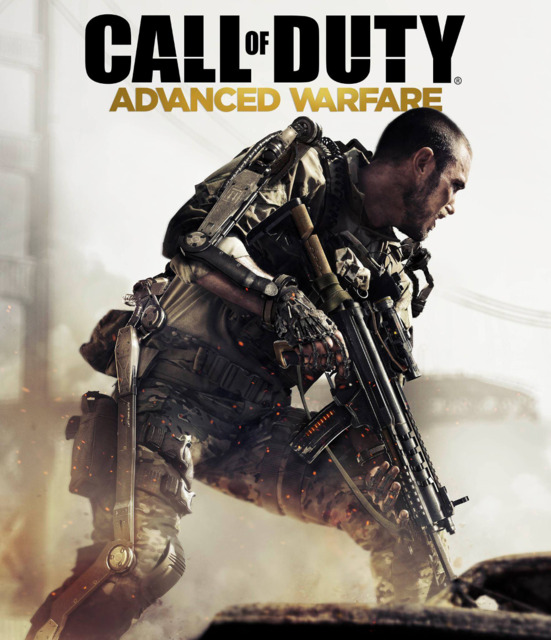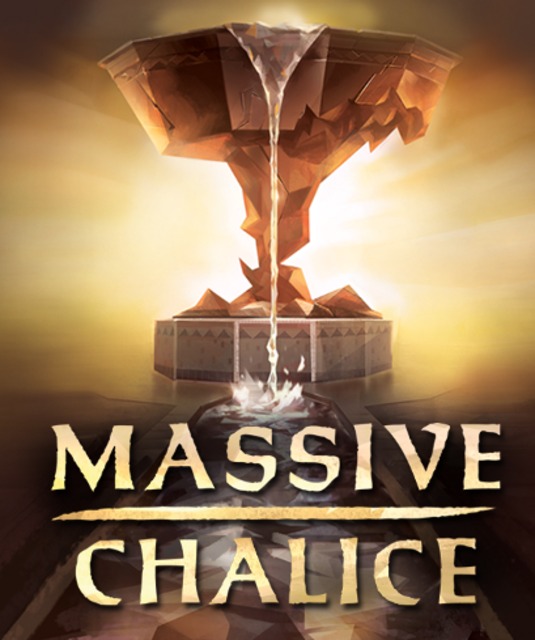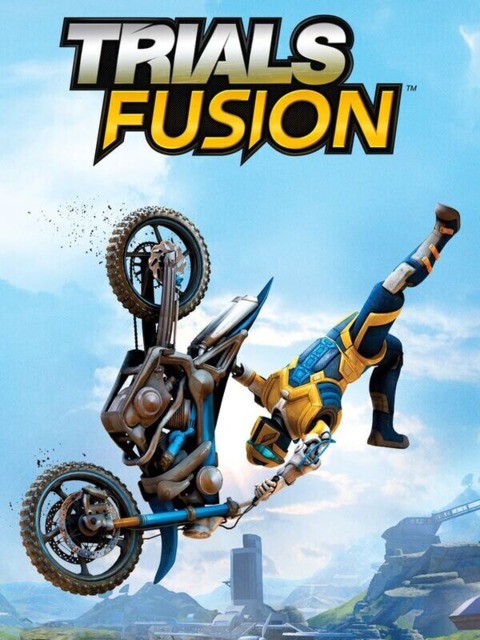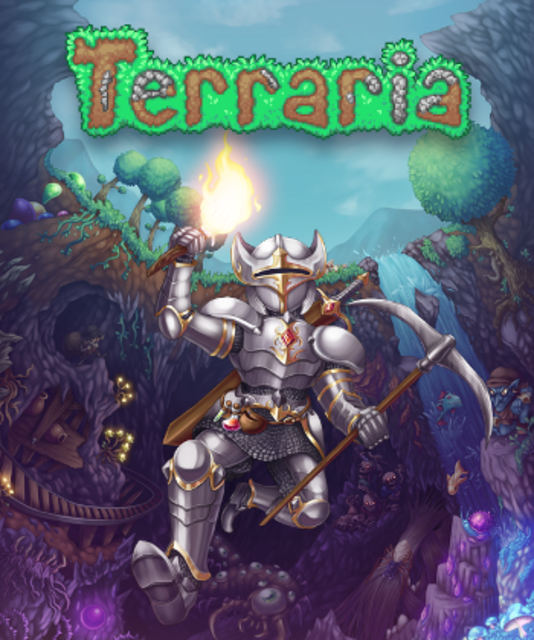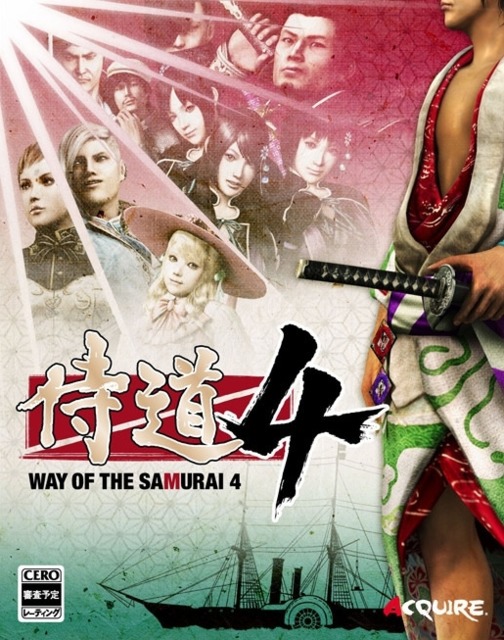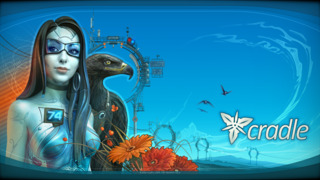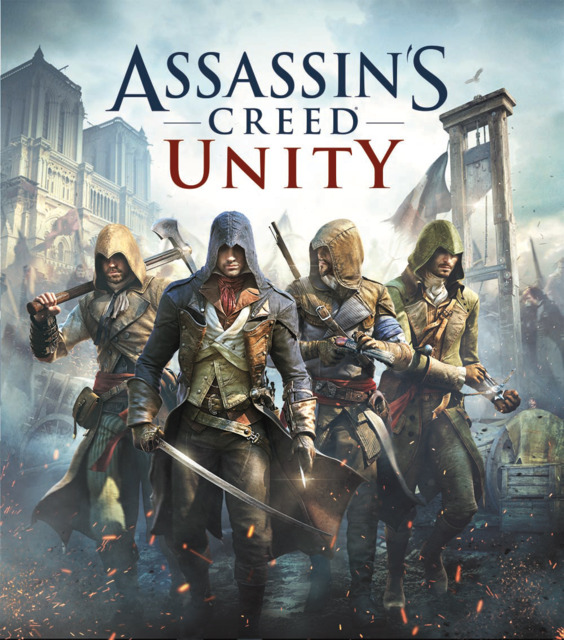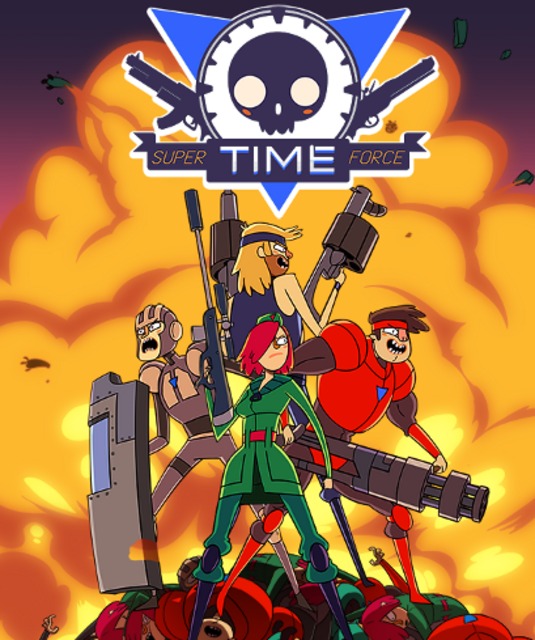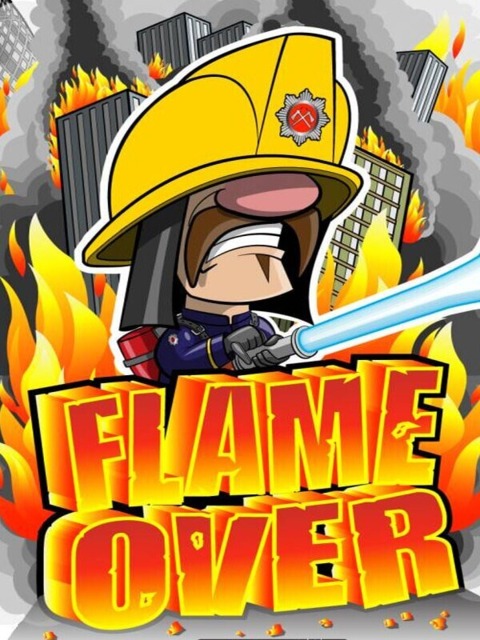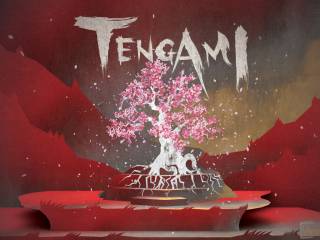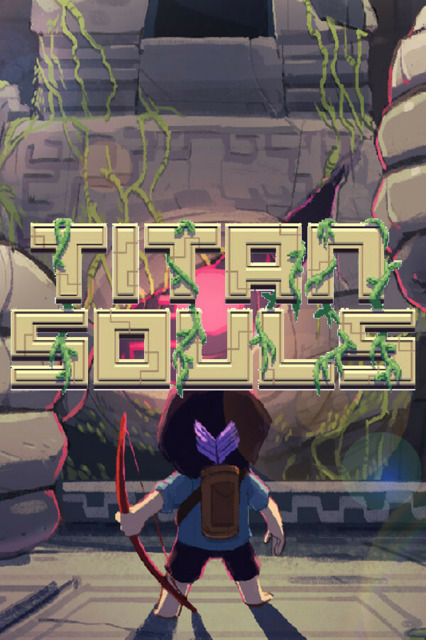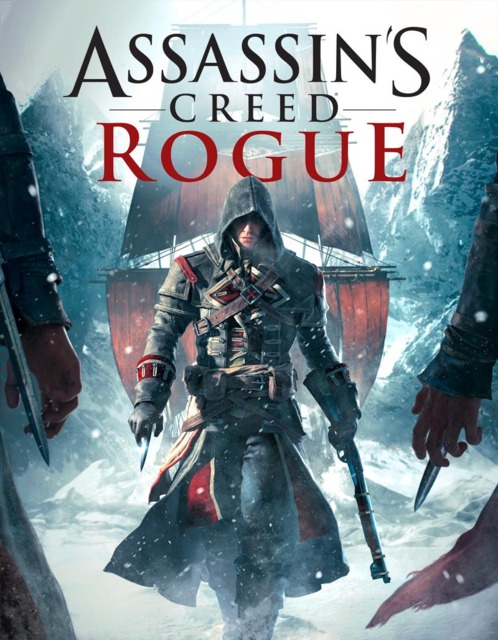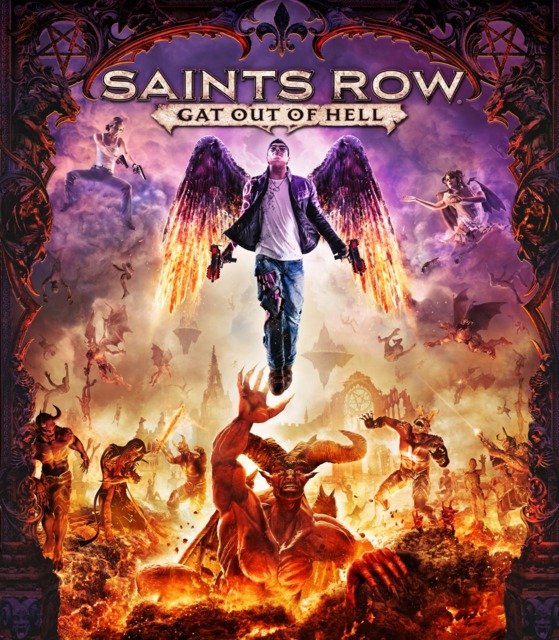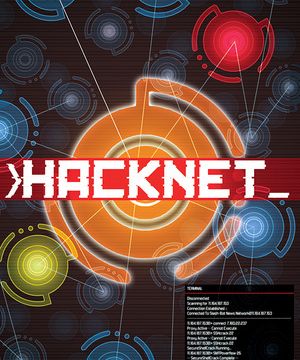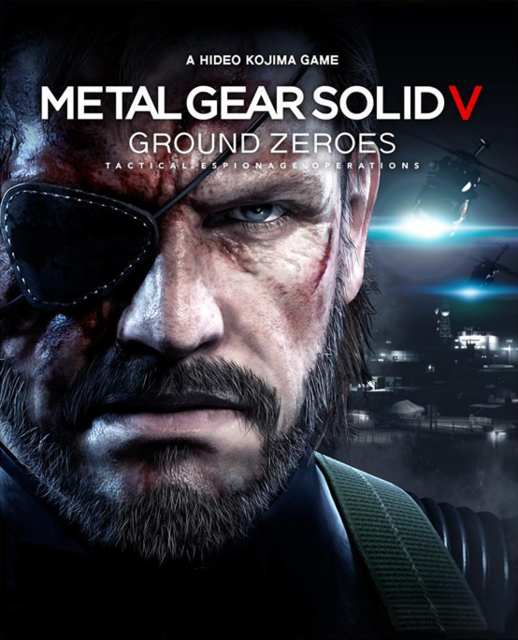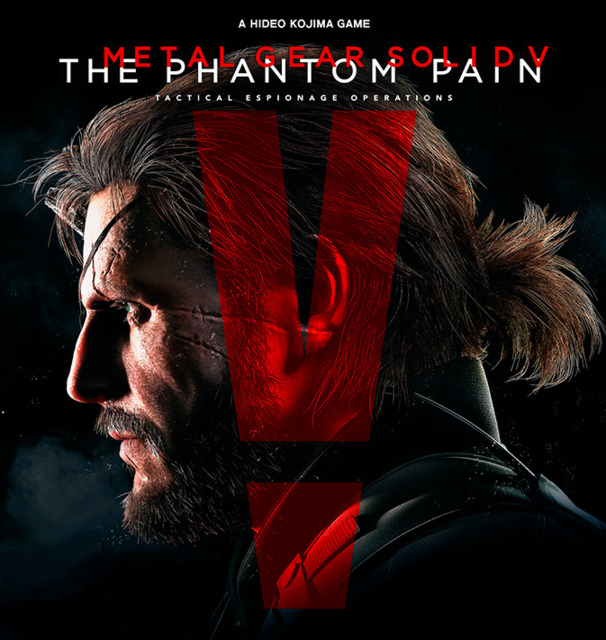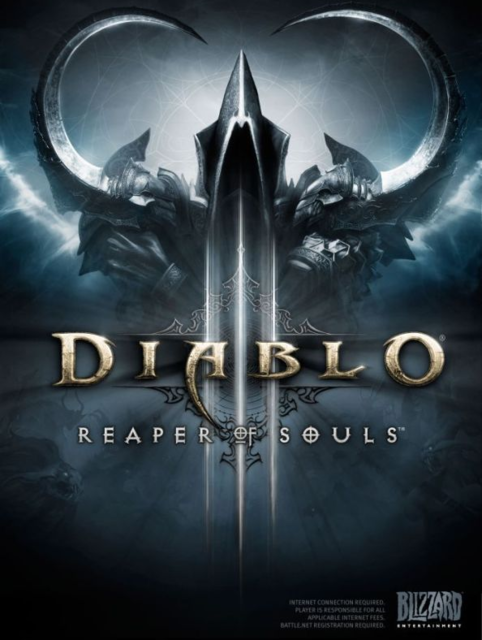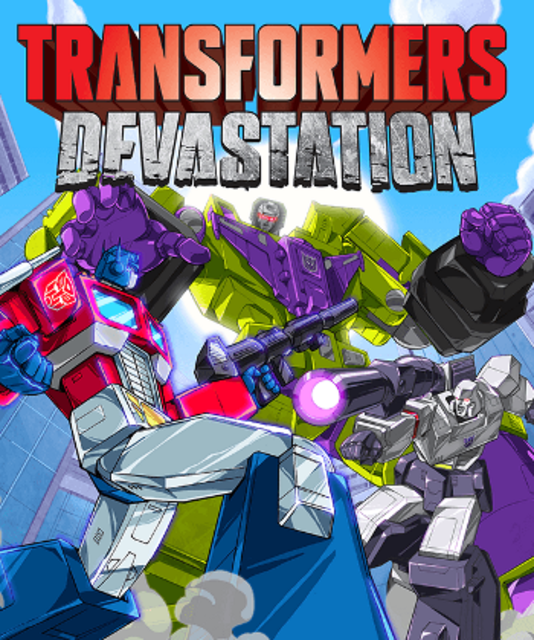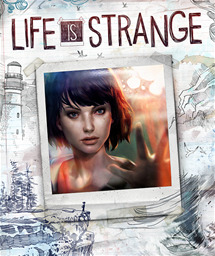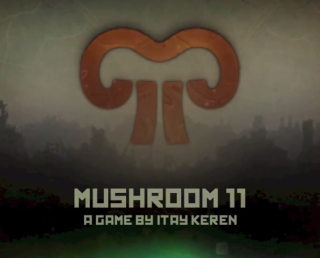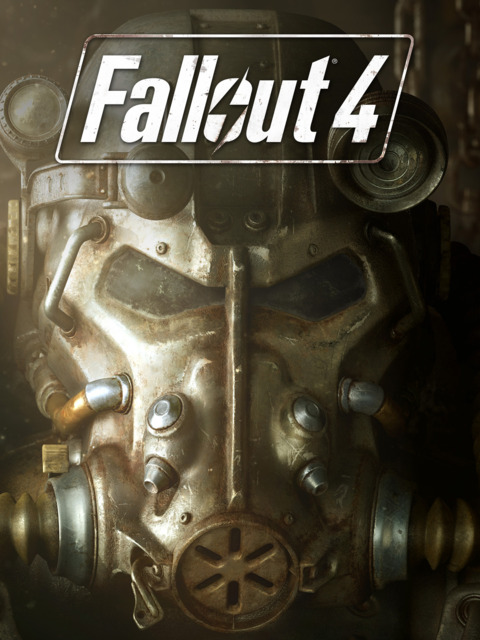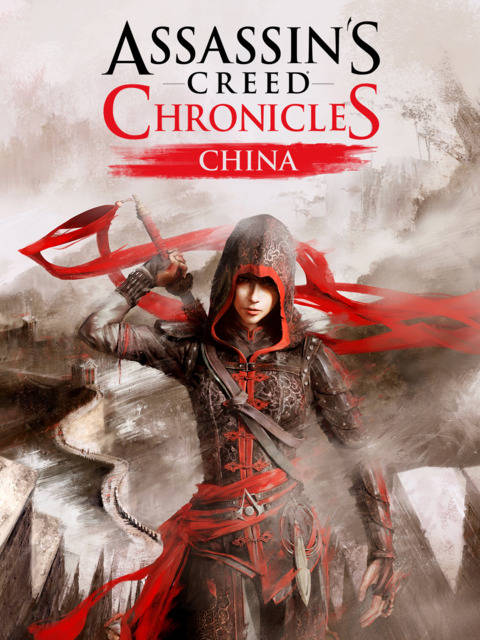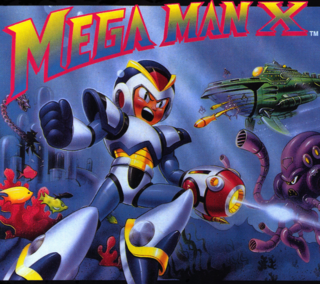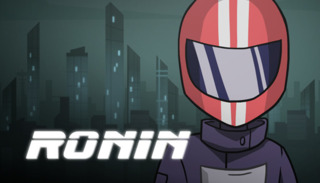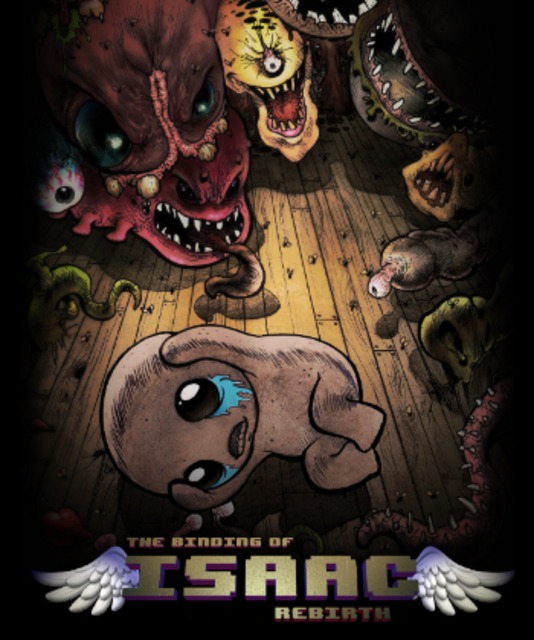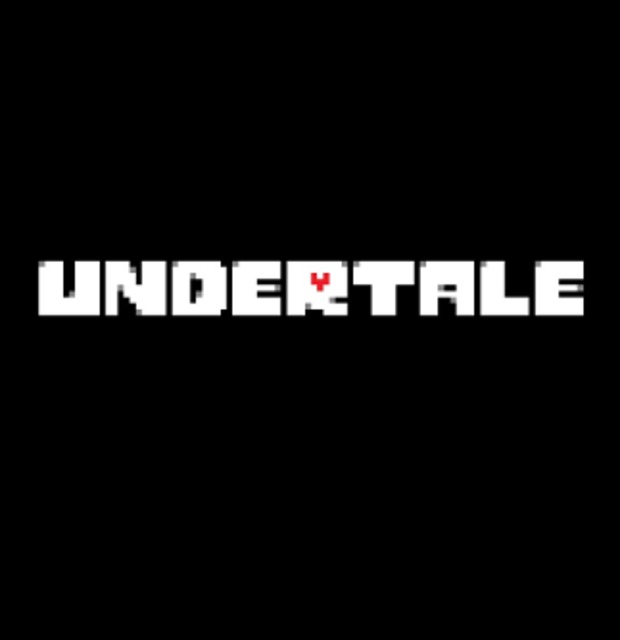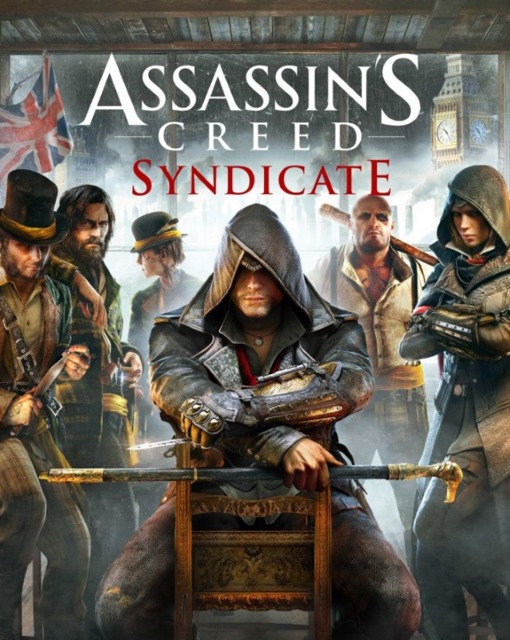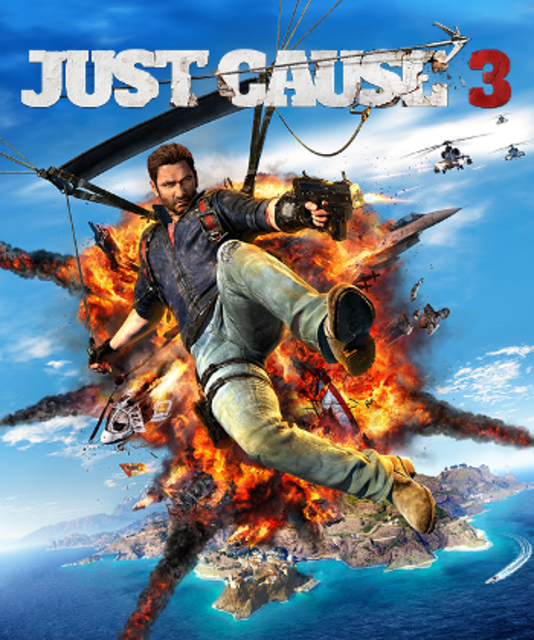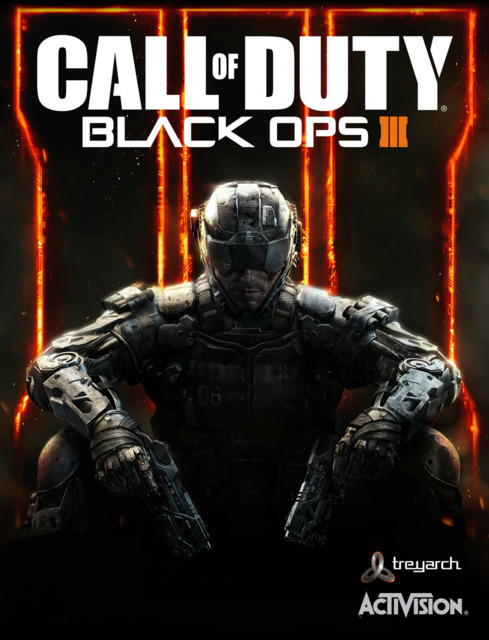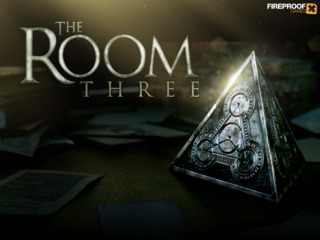List items
-
One of those games that have some cool ideas, but (to me) just felt like a cheap version of a better game. I feel like these kind of isometric action RPGs demand classes with identity whose abilities *do* things.
Playing the caster class, I felt more like someone throwing firecrackers than a wizard: Weak and useless.
Adding to this, I didn't really like the setting - not at all what I expected from something set in the Van Helsing mythos - less fantastical beings, more "[bad] super humans".
But, there were some interesting ideas: like commanding NPCs to move forwards or pull back while defending a city - pushing your luck.
-
Not all of it - I played all of that through back when it was originally released.
I just went back and played "Enter the Dominatrix" and "How the Saints saved Christmas."
I quite enjoyed both, though enter the dominatrix was a bit too self-referential at times.
-
Conceptually very cool - but my enjoyment of the game was greatly diminished by a rare case of violent motion sickness. Urgh.
I did enjoy the first half of the game way more than I did the second half. May have been that I had not yet discovered the constraints of the game, but it also felt more open, crazy and fun. While the second half was a lot more on-rails.
-
Good game - though when I played it, it felt a lot like it was missing a lot of content.
But what was there, was really cool.
It really got me hot for Star Citizen again, too!
-
Far Cry 4 can almost exclusively be summed up as "more Far Cry 3". That's not necessarily a bad thing, though, as FC3 was an amazing game, and FC4 is as well.
The change of location gives the game a lot of variation that it needed, to distinguish itself from FC3.
As for Pagan Min, I think he's one of the best new characters of 2014. He's not quite as amazing as Vaas was, but in his own way, he's just as good (and he lasts much longer through the story!).
Some parts struggled, but... overall, I was left feeling quite positive towards the game.
-
Wow. This game looks amazing! It's one of those art-styles that I've always wanted to see in a game.
I picked Apotheon up after watching the quick look, and found that I really liked the weight of the combat and the feel of the game.
It's a pretty standard greek story - though it does remind you of the question "Why does anyone ever say anything good about Zeus?" He's really an asshole of godlike proportions.
As most Greek mythological stories go - Zeus has been out partying. Hera found out and wants revenge.
It's a very straight forward game, fairly short (6 hours for me), but kept a good pace throughout.
I did struggle with 2 bosses, largely because the game was trying to do something outside of it's comfort zone, and immediately suffered for it.
-
While it's presentation is a bit stiff - I love a lot about this game.
It's got this heavy Lovecraftian atmosphere permeating the entire thing, coupled with a pretty good "choose your own adventure"-style game with a LOT of options with competent, if a bit barebones exploration and combat. Oh, and there's a basic "Rogue-lite" system on top of everything to encourage replaying - while it allows you to carry on a fragment of the previous games' successes (if any) to your next game.
The writing is excellent (as it would have to be, with this kind of game), but some parts get a bit repetative after a few restarts.
-
Dying Light shows that Techland listened to the complaints towards Dead Island.
Unfortunately, it's fallen into a similar trap, in a different way.
What's improved is the world - it's much smaller than the one in Dead Island, but it's far better than any area in Dead Island, though arguably, none of it is quite as interesting as the resort setting was.
Unfortunately, it appears that Techland found the advanced combat mechanics difficult to port over - and they disappeared during the last few months of development. Very disappointing, but not really a huge deal.
The main problem Dying Light is the same as most open-world games suffer from: Length. They always overstay their welcome. 32 hours is almost twice as long as the game should have been. I was still having fun, I was still exploring.
But something happened, "Bombers" were introduced - which spent a significant part of the last half of the game serially trolling me by popping out of monster closets, spawning behind me, appearing in unfair places and other frustrating situation.
Bombers are the least interesting enemy in the game - you can't interact with them, they don't really DO anything. But if they detonate on you - it's pretty much an instant kill. Making matters worse, they are not highlighted on the minimap, and their "special sound" is not very special. Further making matters worse, they have the same silhouette as normal zombies. It's very easy to get surprised by them.
Compare this to a very similar enemy - the Hazmat Zombie - also detonates on death (if it's gas canister is ruptured), but has a very distinct sound (heavy wheezy breathing), wears a bright yellow suit, and has a different silhouette.
(then there's the question why you can't break the bones of or stun Hazmat suit zombies...)
Then there's the big goons. First they teach you how to dodge "back" from them. Then they change them, and now you have to dodge to the side.
And then they just increase the range in all directions on their shockwave, and suddenly they want you to throw things at them. I did not enjoy that enemy at all.
Then there's the matter of balance. By the end of the game, I was so powerful that I could even stand toe-to-toe with the night zombies - that did not feel very intentional at all. In a sequence in one of the missions you are being chased by ~10 of the night zombies. I decided to turn around, and succeeded in killing all of them. The game, of course, did not realize this.
And then there's the story. Clearly trying to make a character out of the main character, but killing off all the characters that actually were adding anything to the story.
And, of course, the entire ending sequence is so terrible it was just embaressing for everyone. Why anyone STILL thinks QTE sequences are good ideas, I don't understand.
Anyway, yeah. Didn't hate the game, but would've been a lot happier with the game if I stopped playing it 15 hours ago. (total playtime: 32hours)
(Also, seriously, I don't think I've been able to say the name of this game ONCE without looking it up first. It may be the most generic zombie-game name ever conceived!)
-
I feel like The Crew's been largely dismissed. Certainly, car/racing games aren't very popular at the moment, and it seems like there's a preference towards the more 'realistic' simulation racers.
Me, however, I've got silly enjoyment of the more arcadey racers. For me, Need For Speed: Underground was one of the most enjoyable racing games in the last... 10 years?
Even played as a singleplayer game (as I chose to do, despite quite a lot of players around), I quite enjoyed most of the game. The story's pretty basic - but I didn't expect much else.
The one thing that bothers me, are how bad all the "raid-type" missions are. Takedown - terrible, because the takedown target cheats (when I'm going 300km/h and the enemy suddenly accelerated to what must be... 4-600 km/h in ~1 second and still managing hairpin turns... it just doesn't seem reasonable?). Offroad racing - not fun, you spend a lot of time crashing because you hit a small-ish rock. "Smashing crates" - Hit 80 out of a 100 crates, driving offroad in this terrible car!... not fun.
But the rest of the game? Deliciously arcadey, great sense of speed.
-
I tried to stay away from Cities: Skylines at first - but I wound up getting it in the end. Fortunately - it turns out that this is largely the game that Sim City should've been.
Unfortunately, it's also the game that Sim City burned me out on.
Either way, pretty good city-builder. Though, to be honest, I'm still waiting for a city builder which delivers what Sim City promised.
-
I think it's an easy argument to make that Hotline Miami 2 is a better game than it's predecessor. Pretty much all systems have been improved: mechanics are largely the same, but with more variety and possibly tighter? Story plays a larger role. Level design has vastly improved, with significantly increased level sizes. The list goes on.
However. Hotline Miami 2 is a more measured and controlled experience than the first game. And through all of it's extended polish, it loses some of it's frenzy - which may be a question of Hotline Miami just being the right game at the right time for me - and that window having closed with Hotline Miami 2.
Who knows? HM2 is a great game, either way, I certainly don't want to detract from that.
-
I do think that there's quite a bit of hyperbole going around in regards to the graphics of this game. It's very pretty, but... it's not quite what some people seem to be saying here.
That said, what the game is a mid-difficulty platformer, with some more challenging bits that took me a bunch of tries to get through - but mostly you'll be booking through the world at a pretty good clip, eventually ending up with enough navigational tools that you'll be pretty much unstoppable with a really wonderful flow to your movements.
This is really where the game shines.
I do have some criticism towards the vagueness and hand-waveyness of the storytelling. I guess it just feels rather unfocused? But in the end, it's all nature anyway.
The biggest disappointment has to be the game locking your savegame when you finish the game. It does make sense, and they do warn you. But it would still have been nice to be able to go back...?
-
While this is a pretty low budget game: there's a definitive sense that it could've used a bit more work - and could've been longer. Intrusion 2 is game of escalation.
You start off running around with a pistol. Eventually, you'll be snowboarding down a mountain using the canopy of a mech, avoiding airstrikes.
For what it is, it's very exciting.
-
Cool, but seems a little bit too random for my taste? Felt a lot like the game would randomly just put you in situations you couldn't prepare for that would just screw you over completely.
-
The reductive description of Dex is "2D, indie Deus Ex" - but it fits - and it's good. It does have problems - and the launch of the game was problematic (with save game corruption (which happened to me), a generally poor system for handling saves and poor game pad controls).
Dreadlocks, the developer, appear to be doing a decent of solving the post-launch issues, though.
As for the game it-self, the prior, reductive description fits well. Merging decent (but not excellent) platforming mechanics - which is really only used as a platform of navigation (occasionally rewarding more challenging platforming exploration with "secret areas") - and some light RPG mechanics (simple skill trees and dialog trees).
It's ambitious, but it's from a small developer, so I'm willing to look the other way - and am looking forward to what they do next.
-
A lot of cool ideas here - the random villain, the ability to draw your gun on anyone (and most NPCs reacting to it), etc) meets a SNES-era style RPG-minus the RPG mechanics.
Quite enjoyed it, though I did have some technical issues - certain situations triggered without actually happening (like suddenly being told I'm a ranch murderer...)
-
I missed this when it was originally released, but I heard a couple of stories about it since then, how it was a "kind of reverse 4X", with some great storytelling and interesting diplomatic gameplay.
And it is!
It also has a pretty interesting turn-based mechanic that is similar to the X-wing miniatures/X-wing Armada boardgames - where the game pauses every few seconds to allow you to issue commands to your flagship, which are then carried out for the next few seconds of action - before letting you issue new commands.
Each campaign appears to be fairly short, so I'll probably get a few more games of this in over the coming year or so.
Very cool!
-
When Witcher 3 is on point, it's a great game. When the game is telling a story, showing it's rich tapestry of characters - it's great.
But... then there's the open world. Then there's the bugs. Then there's the endless stream of compromises made to allow for all of the junk the game provides OUTSIDE of the main story and the core mechanics necessary.
I've not made a secret of my dislike of open worlds. And while I understand why The Witcher needs an open world, it's not a well-implemented idea. It's throwing paint at a wall until it starts resembling something - it distracts from what the game is good at (Characters and Telling their stories).
... and then there's the matter of how the game treats women. There's a real dissonance in the game between the foreground behavior of women and the background. On the one hand, some of the most powerful people in the world are women (Sorceresses of the Lodge), on the other hand, there's apparently the same odd idea that women are poor leaders, considering the amount of time spent on discussing a certain character's rise to the throne.
On another facet, a lot of women presented very prominently being abused and disfigured on a far greater level than the amount of males receiving similar treatment.
In two particular examples, a female character that was saved in a previous game's cameo had her return tortured to the point where she begs Geralt to take her life. The camera meanwhile pans over her broken body to really show off every curve...
Meanwhile, a male character (arguably a less notable character) who is burned at the stake only receives a few seconds of screen-time, including his burning - and I had to look up his "codex" entry to realize it was a main character.
Combat is one of the game's stronger points - but I'm surprised at the amount of praise it has received. It's fine, but it's not amazing.
A large part of why it mostly works, is because movement is exaggerated in combat. But occasionally, the even that will just fall apart, and a monster will trap you in a corner and just tear you apart... and there's literally nothing you can do about it.
... which brings me to movement outside of combat. Which is so bad that CD Project Red apparently already has patched movement to be more responsive. For such an agile guy, Geralt controls like a tank - with no finesse at all. Feathering movement keys will see Geralt first not moving at all - and then finally taking huge, exaggerated movements. In many instances, I spent frustrating amounts of time just stepping around an item in the world that I knew I had to activate, but I was not able to STOP Geralt in a position where I received the "examine/activate" prompt. (And then there was the whole issue with there being candles, torches and braziers all of the place that kept stealing focus when trying to activate items...)
Another thing that pisses me off, which is the second RPG in half a year that's gotten this wrong - Inventory management. Admittedly, it's not as bad as the other game (Inquisition), but I spent several hours of Witcher 3 just dealing with inventory management.
And not just the absolutely not-fun aspects of a "weight" system. But with vendors having limited amounts of coin (yes, I know how to circumvent that... should I need to do that?). And an enormous amount of crafting material, books, notes and all other form of crap that there's no way for the player to know if they are useful. It doesn't help that the "Junk" tab of the inventory also includes items that insinuate being "Quest items".
Another inventory-related matter is that on most inventory-related screens, there's no way of seeing what the item you have equipped is, in comparison to what you are looking at - indeed, when you loot items in the world, you don't get ANY sort of information about how good that item is.
Also, the repair/remove upgrade UI is terrible. You spend a lot of time repairing items - to the point where the you stop reading the warning dialogs it pops up. For that reason, it's horrible design that the "remove upgrade" UI has the exact same flow. I removed all my upgrades several times for this reason.
Please stop making bad inventory systems. Inventory Management is not fun. It should be easy to deal with.
And if there's one thing that Dragon Age: Inquisition got right, it was the removal of weight - the implication that the main character wasn't actually running around with 20 swords (etc).
And the bugs... sigh. Everything from having enemies float in the air. Quest items that could not be used (required reload). Lost save games, crashes to desktop... and so much more.
So. Did I enjoy the game? Yes. I enjoyed the story of Geralt, Ciri, Yennefer, Triss and the rest. But I did not enjoy the open world mechanics... or most of the issues I've mentioned above - to the point where I considered giving up many times.
-
Another Wadjet game - very similar to their other games, this also has an interesting story and "retro" graphics (which I'll argue are both a benefit and a detriment to the game).
There are a few instances of pixel-hunting an d"non-sense adventure puzzle" (combine the lampshade with the bulldozer) in the game, though, which I feel always makes these games worse.
Still, good game, with an interesting story.
-
Short. But great.
Looking forward to the sequel/episode 2(?).
-
Very interesting. In many ways, probably one of the smallest games I've played this years - though it still took me almost 7 hours to go through - though I did end up unlocking all videos and achievements.
Well worth checking out if you want to get a decent detective experience.
-
I find myself curious about the Call of Duty campaign now and then. It's usually quite a roller coaster. It's usually entertaining - Black Ops 2 certainly was - not to mention it's surprising branching storyline.
I didn't play Ghosts - but I understand it was quite a mess.
This game, is somewhere between - it's competent. But it struggles with pacing and storytelling. It's the breathlessness of a 5-year old telling you about the coolest thing that ever happened to them - and similarly disjointed.
They want you to care about their characters, but they never give you the character development to do so. They never let you spend honest time with them.
And Mitchell, the protagonist, in this game, keeps doing hard turns between being a silent protagonist while you are playing him, and being reasonably outspoken in the many cut-scenes (which are quite good). Unfortunately, for me, it him feel more like a lesser character - as if he was only showing up for the cut-scenes.
It's not a bad game, and I think that the Zombie mode might've been something I could've dug into - if I had more time and friends who were actually interested in picking this up. But I don't have the time, and it's a hard sell, considering how inflexible Activision remains with the pricing of this series.
I'll probably pick up Black Ops 3 - because I liked what Treyarch did last time around - though I strongly hope that they are better at the storytelling beats than Sledgehammer were in this game.
-
On the one hand, Massive Chalice is kind of a simplified XCOM-style game. Every component seems to lack the depth available in the XCOM games - there's less nuanced research to be made. There's no cover. The enemies are simpler. Both the tactical and strategic parts seem... simpler. At least on it's surface.
Beyond the surface, Massive Chalice is so much more - the XCOM-like gameplay is less important to the overall game than the Bloodline-mechanics. And this is where Massive Chalice becomes something absolutely magical.
While XCOM has you caring about individual soldiers, in Massive Chalice, the fact that all soldiers could also become parents of future generations as well as researchers creates an emergent story. You'll spend a lot of time staring at the stats traits and personalities of your soldiers - trying to find a balance between sending your "genetically strongest" soldiers into the field, and risking them... or building a legacy on them - if you even get the chance!
At one point in my playthrough, I had decided to found 2 bloodlines from the same bloodline. This caused me significant headache as I ran into the problem where almost all of my heroes were siblings.
The world was almost lost because I had forgotten to take into account the genetic diversity of my bloodlines.
At another point, my entire team of active-duty heroes were forced to step back to become regents, standards and partners - basically, running my kingdom - leaving me with an entirely unproven team, which almost proved fatal, on several occasions - though the following generations were much stronger for it.
If I have criticism for the game - it's in how it struggles to balance the different classes. I found the Hunters (and it's associated child-hybrid classes: the Trickshot and the Enforcer) to be the only reliable class to bring on missions.
Meanwhile, the Alchemist's accuracy was too poor (causing near-disastrous friendly fire on several occasions) and the range just seemed superior to the Caberjack's limitation on getting in close (though, when I tested one, late in the game, they proved reasonably effective - but did not gel at all with my playstyle at that point (all hunters in veil armor).
Also, related to the hunter-class, the Veil armor seems way too good to ever replace. The ability to hide anywhere just means that you can always set up the perfect ambushes, and/or wait out the enemy. And without manufacturing (like in XCOM), upon research completion, you instantly have enough suits of armor for all your heroes - allowing you to gear everyone in the best gear.
It removes some friction, but I kind of miss some of that friction, from XCOM - where the best suit of armor was passed around to where it was needed the most. And additional suits of armor wound up on "deserving" heroes.
Overall? Excellent game.
-
Trials Fusion remains weird. I like it, but only in small doses: so I keep popping in to scratch that Trials itch, every few months.
And sure, the unicorn in Awesome Level Max is a bit janky, but so what? I loved the spirit of the expansion.
-
Another old itch being scratched again. Dropped another 100 hours into Terraria after the 1.3 patch - wound up getting all but the most random-based achievements and defeating all bosses and events.
Terraria is still an awesome game... and I may be back for those last 4 achievements...
-
Never played one of these games before, but seeing it on PC... kind of reminded me of the Tenchu games, which I still love.
26 hours later, I'm probably done - but it was quite the journey.
... even if that journey was almost impossible to get into, because of how terrible it is at explaining it's mechanics. And half the mechanics of the game, I still feel like I've barely touched - it's just a terrible mess... a terrible, lovely mess.
It doesn't help that the game feels kind of like a portal back to most japanese games for the PS2.
One day, we'll get one of these games with modern, user-friendly mechanics, and it'll set the world on fire the same way Dark Souls has. :P
-
Sometimes, there just shows up a game out of nowhere that you feel like trying out - this was certainly one of those.
It's a first person story-based puzzle-game with an interesting aesthetic - not really the kind of games I spend a lot of time with.
And as it turns out - it's pretty interesting. It stays pretty focused with small environments that feel lived in. There are some problematic elements - they use a "video game [in the game]" to break up the puzzles with a bit of action. It works... but it's not very good.
But the biggest problem lies in how deliberate it is - in some sections, the game refuses to let you progress until the current piece of music that it's playing has finished.
Now, the music is nice... but that's insane.
But overall, very positive experience.
-
So, I finally got around to it - I've been meaning to play through this since it's release, but for various reasons, I've just not gotten around to it.
I will not be spending too much time digging into what was wrong with the game at release. That's mostly because I don't feel like doing so. But it happened: It was bad.
And for that reason, I think it's almost impossible to discuss this game for what it is, rather than the spectacle it became/was, which is really sad, considering that it is now, except for AC: Black Flag, the best Assassins Creed game since AC2. It's also extremely ambitious.
And without a doubt, the main component of it's downfall was it's ambition.
(And yes, I will be discussing the game's portrayal of women)
AC:U is a leap forward in almost every category - probably the first true "Next gen" (now current gen) game.
Graphics: One of the best looking games out there. There is a reason there are articles written about characters in AC:U kissing. It's the first time a video game has managed to convey such an intimate moment without making it look like someone is mashing a pair of dolls together (see "How do they do it?").
(And no, this doesn't excuse the terrible state of the game, it's optimization, or that the world needed to receive a 4(?)GB patch release week) to fix optimization errors.
Crowds: Seriously, have you SEEN the crowds? Those are impressive by anyone's standards. There are literally people everywhere in Paris. And they aren't just the billboards we're used to from most games - these are characters that you could theoretically interact (read: bump into, assassinate, etc) with.
Combat: The most interesting Assassins Creed combat still - and no, Arno isn't Batman. And I don't think he is supposed to be. Sure, the combat is more frustrating than both Batman and previous Assassins Creed games - but I think that's by design, for the first time in a while, Combat isn't just a matter of mashing counters - there is skill involved here, paying attention to what your opponents are doing is rewarded and necessary. Entering into combat is a risk. Combat is mostly something you do when you are out of options - it's desperate.
And yes, you can still be as "bad ass" as you've been in previous Assassins Creed games - it just takes a lot more effort.
Stealth: The other side of the coin of Combat being revamped and improved is this: There is now an incentive to not get into combat. To step back and consider the situation before you dive in. And maybe whittling down the opposition before you dive in - giving you a real feel for taking control of the battle field, rather than just being almost invulnerable as in previous games in the series.
The Map was probably another of the large issues people took with the game - and... while I kind of get it. It's really dumb. Welcome to open world games? This is how all open world games would look if they were open with how much shit they put in the worlds.
But yeah, they messed up - and the the companion app-chests should probably only have showed up if you used the app.
Oh well.
Women: *sigh* The biggest issue people seem to have had with this game. And it's all a big misunderstanding.
First of all, I want to cover one thing before I dig further into this. The problem with making historic games, is that you either make (semi-)accurate games - in which case women will largely be treated really poorly. With the exceptions being rather few and far between...
Or you can make a "historic game" that glosses over the historic state of gender politics (etc)... and I would feel really weird if Assassins Creed, which, I feel, is trying for *some* historical accuracy (which they then play fast and loose with).
Basically:
* More Decapitated heads than women - this was bad. But, still, I feel like this is, again, a product of the times the game is set in - Women who held any kind of power in the halls that Assassins Creed is playing in are few (and there are several in the game). Also: Come on, it's the French Revolution - if there's one time you can get away with decapitated heads, it's the french revolution. (I realize this wasn't isolated to AC:U at the time)
* "Women are too hard to animate", in regards to why there are no females in co-op - Is a really fucking dumb response. But, I feel this is a case of a journalistic "ambush" on someone who maybe didn't have enough media training - or just had a momentary lapse of judgement.
Because it's not why there are no women in coop. The reason there are no women in coop is because it's seamless. You never stop playing Arno. Your customized Arno appears in other players' games, but to them, you are just another generic Assassin, dressed like your Arno. Having you appear as female in their game (but still be Arno in yours) would just be weird...?
And there are plenty of Women in the game - including Elise, who has a full range of motions.
* Female portrayal in the game, in general: Overall, women are under-represented in the game... which seems reasonable, considering the time-period. But there are several women - none of which I found directly offensive.
Also. Elise, the female lead, is quite capable, is never presented in an undignified manner, and despite a couple of poor writing decisions (which I won't dig into too much for spoiler reasons), I felt she came off as a strong female character - with as much, if not more character than Arno (the protagonist).
That said... let's get back to the game in general.
As much as there is to like about AC:Unity, there's no denying that it stumbled and probably could be said to have fallen. While the revamped combat does a lot to improve the game - and there's a lot of cool things going on with the game, it doesn't fix the core issue with the game: For those of us who have stuck with the series since the beginning, it's becoming rather long in the tooth.
And... I don't think I really touched on any of the actual problems with the Assassins Creed series here... that would be an entirely different thing.
But... I'm still excited to see how AC:Syndicate portrays London. Because these games really excel at showing time-period worlds in a way that no other game series is doing (Well, there's Shadow of Mordor), and I do hope that the series manages to eventually reinvent itself to something that we can all be genuinely excited about again.
-
Another game I just never got around to finishing when it was released. Capy's found a great place for the "internet humor" that is very prevalent in game. It's very obvious what they are going for - and it's very blunt. But it works.
And the end is pretty awesome ;)
-
Interesting little indie game. If it had had some sort of "rogue lite" mechanic, I could've seen myself playing it quite a bit more - as is... as good as this seems, there's just nothing that makes me want to come back.
But it's pretty cool.
-
Very simple game, more of an experience than a game, really.
Just a nice way to spend an hour, or so.
-
Cool game. But ultimately, not my kind of game, I think - more aimed at speed runners. Certainly a bit of Masocore here.
I did thoroughly enjoy the boss/arena mechanics though - many of them were quite clever.
-
The game no one played. Which is a shame, since it's literally the sequel to the much-loved Black Flag.
And that's just what it is. It's more Black Flag. It shows, in parts, how it was not the flagship Assassin's Creed that year - and it's Assassins Creed parts (as opposed to the ship parts) really suffer when compared to Unity.
But it's got an interesting, slightly different story.
-
I seem to always forget how much I love this series. Gat out of Hell is one of the weaker entries to the series since Saints Row 2 - but it's still really good.
Or, rather, the story is really fun. And the flying feels great. Maybe there's a bit much open world fluff, but...
The Devil and Gat play out a musical number. It's pretty good.
-
Not sure what I expected - but Home delivered something else. Very tense. The story was riveting until the very end - which I found was a bit disappointingly verbose, considering how sparse the game had been with telling you things up 'til that point.
Obviously this is the kind of game you are supposed to play through multiple times to really find all the details - but I doubt I will be doing that.
-
At this point, I think it's impossible to discuss "hacking games" without mentioning Introversion's Uplink. Unfortunately, Hacknet doesn't have quite the depth of Uplink - but fortunately, it's a game that is a lot smoother, more coherent.
Hacknet is a very interesting experience, and I appreciated my time with it.
-
Went back to play more Ground Zeroes in preparation for The Phantom Pain - learned to appreciate the nuances of the stealth in the game... and wound up S-Ranking the game.
Claiming that Ground Zeroes only has 1.5 hours of content is kind of silly, really - it took me 30 hours to master the game - beyond Ground Zeroes (the primary mission) being ~1.5hours of content first playthrough - the additional missions have a lot of important and interesting details too.
Anyway, Bring on MGSV.
-
Another awesome puzzle game. I expect I'll come back to this game for quite some time.
-
Yeah, there are problems with the story of this game. But it works for me, either way.
The twist was great. And regardless of if it was planned or not, they succeeded in making a game that hurts at the end. Did you really think that a Metal Gear called "The Phantom Pain" would be a pleasant ride?
The gameplay is... the strongest Metal Gear. The strongest Open World game.
In my mind, this game's eye for game mechanics. For details. For fun gets a lot of things right that other games completely fail to take into consideration.
-
I guess it was just time for another go at Diablo.
-
Not quite Revengeance level to this, but it's a great character action game. Perfect for Tranformers G1 fans. Perfect for Platinum fans who are looking for something a bit lighter.
-
Oh man.
In short? Dontnod just beat Telltale at their own game. This is so much stronger than anything Telltale has produced.
Some parts are rough. Some parts are a bit boring.
But when it all comes together: Right in the feels.
-
Masocore puzzle/platformer.
Does that sound enticing to you? Then this is probably for me.
Personally, this is one of the most fiendishly frustrating games I've played in a long time, and I did not have a lot of fun with the game past it's opening levels - which promises a very different game. Something pleasant.
I was wrong.
See, the main reason I felt so frustrated about the game is that it keeps asking you to do things that are at the far edge of what the games' controls are capable of handling.
I finished it. So it's not impossible. But... yeah?
-
Look. There are a lot of cool things about Fallout 4. The world is cool. A lot of the ideas surrounding it is cool.
But Fallout 4 is a deeply flawed and haphazardly put-together product. In many ways, Fallout 4 is a less well-realized world than Skyrim was - with the same terrible UI.
UI. Is 2015 the year of the RPGs with terrible inventory management? I don't know, but every time I pick up a tape from a container and have to scroll through the list of 500+ misc items I'm carrying. Or the concept of keeping drugs and food in the same tab? How about how the one piece of mutt meat weighing 1 is sorted higher - when sorting for weight - than the 50000 pens I'm also carrying - but each individual pen is only 0.1!
Or the insanity of crafting with *a* component of an item not returning the remaining components to your inventory.
And I'm not even talking about the Pipboy aesthetic - the Pipboy aesthetic is fine. But making a User Interface that has Aesthetics of the 1960s doesn't mean it also needs to have the user experience of a UI from the 1960s.
Dear game designers: Inventory management has never been fun. It stops you from doing "the fun thing".
And while the city-building mechanics scratch that builder's itch, there are so many systems with poor design choices that are placed on top of it.
And then there's the story telling. The main story just... straight up doesn't work. It screams of some designer being frustrated about how everyone put off the main story-line in Skyrim and decided to try to bend the player's arm by introducing the family.
Don't get me wrong, the intro was neat. But the moment the game let me do my own thing, all the story line became, was an annoying anchor that kept making me feel bad about enjoying the one part of Fallout that I DO enjoy.
And while we're at it, all the choices you do in the story are bad. Not in a "Oh, I don't know, this choice is good because of this... this choice is good because of this...". No, first of all, you make all decisions using the terrible speech system, which... as usual, when you are trying to convey multiple sentences with 1-3 words result in miscommunication.
Then there's the fact that everyone but the Minutemen are just assholes.
Stealth remains the system that Bethesda isn't even attempting to balance. Not sure if that's good or bad - I would probably be even more frustrated if I didn't have the easy out of abusing stealth.
Oh, and pre-rendered cutscenes in a game that focuses on character customization and freeform(-ish) city-building... is a very dumb choice.
That said. I did spend 88 hours with Fallout 4. But that was despite all the above. Some of the characters are neat. I liked Piper. I liked Cait. I liked Nick. Strong's not bad.
Dogmeat is unfortunately extremely pointless.
The good part of Fallout 4, is when you just leave the stories Bethesda are trying to tell, and listen to the stories the world is telling through it's ambiance.
There's a lot of dissonance with how the game ends it's intro - by giving you some relatively late-game games. But while I spent about half the game just kind of glaring at my power armor (well, all about 20 of them...), it was a cool bonus thing that I pulled out occasionally when I felt like changing the way I played the game. The mini-gun I never touched again.
It's sneaking around, just enjoying the overpowered mechanics. I can't recommend the game. But I doubt anyone who has been listening to me for any amount of time really expected me to be able to do that.
The game has heart, occasionally, but this isn't the game I wanted.
-
Stylized and experimental - borrowing a lot of inspiration from Mark of the Ninja.
It's good, if not quite as striking as Mark of the Ninja. But I'm certainly looking forward to the future Chronicles games.
-
Wound up picking up a WiiU.
... and immediately downloaded one of my most played games - Mega man X.
Not a lot of new to say about it - it still stands up. Excellent platforming, and an inventory system on par with that of Fallout - 22 years earlier (oh and it's a single screen here) :P
Highly enjoyable.
-
When I first saw the game, I immediately thought of Gunpoint.
And it does borrow a lot of influence from it - but the difficulty went some weird place that I did not at all appreciate, and I wound up burning out on the game.
-
Friends are doing daily runs of BoI: got me back in it.
It's still a good game, though I still don't really like the theme.
-
When I first saw Undertale, I thought "Huh, cute. Clever. I might check that out some time." And then promptly forgot about it.
Unfortunately for me, it was brought back to my attention as a result of all the hooplah surrounding it in the proto-Game of the Year discussions. As a result I felt I needed to play it before the end of the year.
As a result, I came into Undertale with very high expectations - similar to what I had for "The Fall" earlier this year. For me though, while Undertale is clever and does many cool things - the frenzy surrounding it recently has... I feel, put it in an impossible place where people coming to it will likely be disappointed by it - because it's too much of what people expect for the-things-that-happen to have the impact it deserves.
But maybe that's a bit too meta-commentary? I did enjoy it, a lot, but not to the degree I feel I should have?
That said, I do think that where people went crazy about Brother's telling a story using the game's mechanics (which I'm still resistant to agree with) - this game actually tells it's story using it's mechanics.
That said, it was very refreshing to get into some decent storytelling after Fallout 4.
-
AC:Syndicate (which I will refer to as "Syndicate" for the rest of the text.) builds on the ambitious grounds set by Unity and without the technical issues and the non-sense drama invented for that game, Syndicate has gotten some much-earned praise.
Both Evie and Jacob are given significant amount of screen-time, and both grow during the story. Both characters clearly have different things that make them tick - and different ambitions. But they are still a cohesive pair. The friction their differences cause is a major driver of the plot and that works quite well.
I do have one complaint though, which isn't really exclusive to Syndicate or even the Assassin's Creed franchise. That complaint is that a lot of games 2015 needed to have their fat trimmed and to focus on the parts of the game that really work. Because there are a lot of parts of Syndicate that are really strong, really touching. But it's bogged down in the idea that an Assassin's Creed game needs to last more than 20-30 hours, but only manage to dilute what makes them really great. (I have similar issues with most major game releases this year)
I think that doubling down on what makes the game really good could've propelled Syndicate into a classic.
Either way, it proves that the Assassin's Creed franchise still has legs.
Once I finished the main story, I went on to play the "Jack the Ripper" DLC - and was pleasantly surprised. They subvert a lot of expectation and introduce several mechanics (and hinting at things we may see in Assassins' Creed Chronicles: India early next year), which work very well both with the story and with the core gameplay mechanics. I would like to see them keep playing with the Fear mechanics and maybe bring them back as an alternative playstyle in the next game.
Again, there's a lot of excessive stuff in the game that doesn't really justify it's existence, next to the excellent story sections.
-
Just Cause 3 is a great game on the atomic level. Almost every piece of the game is great. It plays well, there are some great characters.
But the cohesion of the game... doesn't work. The game withholds the toys which the game is based around - forcing the player to go through "challenge modes" (by the way, Challenge Modes aren't fun). As well as mobile-style "get X stars to unlock the next area" grinding to unlock main story missions.
It's bad.
Technically, the game flows well and works well in the moment to moment pieces. But... again, the connective tissue is rotten. Like Fallout 4, JC3 is not a very stable piece of software, regularly crashing and showing other technical issues. Adding to this the 2 minute un-skippable startup sequence (including an almost 40 second cut-scene of Rico sitting on a beach - FOLLOWED BY A LOGIN TO ONLINE SERVICES!?). Meanwhile the online services seem to be similarly unstable - I was regularly getting "LOGGING IN" screens - which are random 30 seconds of a greyed screen. Even if you pick "Play Offline" here - it happens again shortly later.
And the UI is not-at-all designed for PC. Sticky UI selectors. The game is designed for you to waste as much time as possible - there's a lot of every other mission in the game being ON THE OTHER SIDE of the area you are in, and then having you go to the OTHER, OTHER SIDE to do the mission once you've activated it. Basically, it's a huge waste of time.
Basically, there's a great game in there, but Just Cause 3 seems to have gotten away from the unbridled joy of just "fucking shit up" that was so great in JC2, replacing it with the game telling you how to play and forcing you through very specific gates.
On the bright side, the story and characters are actually memorable this time?
Bummer.
-
Every time I come back to Call of Duty, I'm surprised at the quality of the game. Why? I don't know. It almost feels like it's become taboo to like these games.
Too popular, I guess?
But really, seriously. Look at this game:
* Campaign (fully co-op enabled) (~13h from my experience)
* Zombies (co-op)
* CoD multiplayer
* Apparently a second, secret campaign?
This must be one of the highest game to money ratios of the year. And I can't convince any of my friends to play it!
Sure, it does a lot of dump Call of Duty things still. It's largely the same game they've been producing for the last couple of years. It's not as good as Black Ops 2 (which was shockingly good!? Branching Story!?), and it seems to have little to no connection to the first 2 Black Ops games.
But really, the story is quite good - especially when you realize that the story is an onion, and the more you peel, the more you find.
And it doesn't hurt that it touches a lot of the same subjects as Fallout 4 does, but has more believable characters and better gameplay. And while it's UI is not great, it's not on fire.
-
Last game of the year! I quite like these games.
I like that they added something "after the end" - though I don't think that stuff is quite for me.
It's a one of those puzzle games that make you feel really smart, though you're really just interacting with "whatever can be interacted with". But it does it well, and it tells an decent story.

